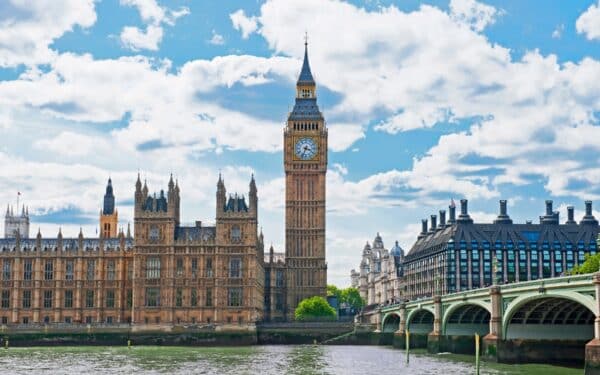A swarm of snap-hungry hacks gathered below the steps of Birmingham Magistrates’ Court last Thursday as two people exited the building after being acquitted of all charges.
The individuals in question, pro-life activist Isabel Vaughan-Spruce and Catholic priest Father Sean Gough were not, in fact, criminal masterminds. The pair had instead been facing respective criminal charges for praying silently outside abortion clinics. In Fr Gough’s case, the clinic was closed, and he was also harangued by police over a sticker on his parked vehicle, and asked if he thought passers-by might find his cassock “intimidating”?
While originally the CPS decided to drop charges, they warned that they could be reinstated at any time, should more evidence emerge – leaving the pair to simply guess as to what may happen if they were to attempt silent prayer in these forbidden zones once again- hence their pursuit of clarity in court.
In any case, the damaging laws behind both parties’ presence in court last week – created via local Public Space Protection Orders (PSPOs) – currently remain on the books, and we will no doubt see similar such cases going forward.
Indeed this is especially the case if Clause 10 of the Public Order Bill which is currently making its way through Parliament, remains intact. The Clause seeks to take these buffer zones to a national level by outlawing any form of peaceful demonstration within 150 metres of any abortion facility across the country, at risk of an unlimited fine. Yes, the very same Government that claims to be liberating Higher Education of censorship is at the same time quietly acquiescing to the extreme agenda of the abortion lobby, with its silence indicating tacit approval to other strangleholds on our rights to expression.
The law is disproportionate, even by the Conservative Party’s own standards. While it would be modest to note that there has been something of a high turnover in Whitehall over the past five years, the Government seems to be ignoring the serious reservations of some MPs about how the 2018 Home Office review on the matter found that genuine harassment outside abortion clinics was incredibly rare. It also concluded that existing laws prohibited harassment and violence.
The new restrictions would not only outlaw protestors but also individuals who offer charity to women who feel they may not be able to continue a pregnancy due to pressure from their families or partner, and financial or emotional hurdles. Indeed, seven per cent of British women have been pressured into an abortion by their husband or partner. The government is possibly more concerned with curbing speech, and even thoughts, it deems unsavoury than genuinely tackling harassment and abuse.
Along with threatening to lock up people for unfashionable opinions, these laws risk exacerbating existing divisiveness. Outlawing the expression of views that one may find to be extreme simply makes martyrs of those who “risk” expressing them. Moreover, forcing ideological conformity can coerce outward obedience, but it is unlikely to truly change people’s beliefs, especially on such a sensitive moral topic.
Of course, people are in many ways slaves to both their passions and personal interests, and civil debate does not ensure anyone will change anyone else’s mind. However muddying the definition of “influencing” and “harassing” to include peaceful demonstrations or dialogue on abortion risks dangerously pushing the issue outside of the public square, stigmatising any attempt to approach the topic by default – a course which has and could impact all ethical debates.
This proposed new law follows the decades-long trend in which demands are made for controversial political issues to be translated into questions of law for the courts rather than matters of personal discretion or genuine political debate. The move toward legalising every corner of life undermines community accountability, politicises justice, and paves the way for legally elevating fashionable causes above others.
Why even stop at the 150 metres that constitute these so-called “safe access zones”? Why end these limits at the public expressions of said opinions near abortion facilities; why not simply deem them thought crimes across every corner of our Isles?
MPs must surely reconsider their support for this draconian legislation once the Public Order Bill returns to the House of Commons in the coming weeks.
Georgia L. Gilholy is a columnist for Conservative Home and has written for publications including The Spectator, The Critic and The National Interest.
Write to us with your comments to be considered for publication at letters@reaction.life




